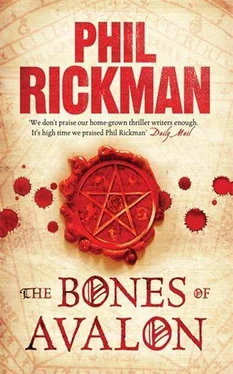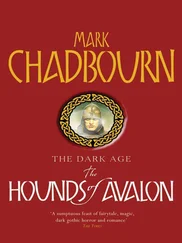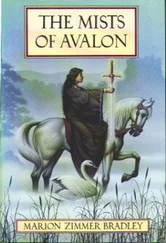Ormond House - The Bones of Avalon
Здесь есть возможность читать онлайн «Ormond House - The Bones of Avalon» весь текст электронной книги совершенно бесплатно (целиком полную версию без сокращений). В некоторых случаях можно слушать аудио, скачать через торрент в формате fb2 и присутствует краткое содержание. Жанр: Исторический детектив, на английском языке. Описание произведения, (предисловие) а так же отзывы посетителей доступны на портале библиотеки ЛибКат.
- Название:The Bones of Avalon
- Автор:
- Жанр:
- Год:неизвестен
- ISBN:нет данных
- Рейтинг книги:4 / 5. Голосов: 1
-
Избранное:Добавить в избранное
- Отзывы:
-
Ваша оценка:
- 80
- 1
- 2
- 3
- 4
- 5
The Bones of Avalon: краткое содержание, описание и аннотация
Предлагаем к чтению аннотацию, описание, краткое содержание или предисловие (зависит от того, что написал сам автор книги «The Bones of Avalon»). Если вы не нашли необходимую информацию о книге — напишите в комментариях, мы постараемся отыскать её.
The Bones of Avalon — читать онлайн бесплатно полную книгу (весь текст) целиком
Ниже представлен текст книги, разбитый по страницам. Система сохранения места последней прочитанной страницы, позволяет с удобством читать онлайн бесплатно книгу «The Bones of Avalon», без необходимости каждый раз заново искать на чём Вы остановились. Поставьте закладку, и сможете в любой момент перейти на страницу, на которой закончили чтение.
Интервал:
Закладка:
‘Believing she must, in some way, make the mantle of Arthur… fit a woman?’
I could still see no obvious problem. In Arthurian terms, the Queen was not merely Guinevere, nor even Morgan le Fay, the enchantress of Arthurian myth, but, potentially, someone greater, more powerful and more glamorous than either. I understood this entirely and did not think it foolish or wayward, for these were strange and awesome times.
And so I waited, the room awash now with winter sunlight, two unicorns coming to luminous life upon a new tapestry, as Cecil drank the rest of his wine with no apparent appreciation. I doubted he believed in unicorns.
‘It all depends,’ he said, ‘on how dead you believe Arthur to be.’
It was clear that we were now talking of the grave found in the abbey at Glastonbury during the reign of an earlier Henry, the Plantagenet, Henry II. I’d read of it last night in the writings of my father’s countryman, Giraldus Cambrensis.
In the year 1191, an excavation at Glastonbury Abbey had uncovered a stone and a cross of lead proclaiming the burial there of the renowned King Arthur. Nine feet further down into the earth, in an oaken coffin, had lain the bones of an inordinately large man and the smaller skeleton of what was taken to be a woman. And a lock of yellow hair which crumbled into dust when picked up by one of the monks.
Guinevere.
And, oh yes, the monks had found this grave. Arthur was risen just when the monks had need of him most.
‘They needed money,’ Cecil reminded me. ‘Lots of it. The abbey having recently been ravaged by a very destructive fire. In the twelfth century, the tales of Arthur and his knights were widely read and told to children. Nothing could have brought more fame and pilgrimage to Glastonbury than the bones of Arthur.’
Naturally, it was said by many that the grave was a fake and the so-called discovery of the royal remains nothing more than a deception by the monks. A deception which was also of considerable value to the King in subduing the hopes of the rebellious Welsh.
‘Nothing better than bones,’ I said to Cecil, ‘as evidence that Arthur was very conspicuously beyond revival.’
‘Indeed. Almost a century later, the bones were placed in a black marble tomb before the high altar of the rebuilt abbey church. Having first been inspected by King Edward I who, after crushing the Welsh once again, at great expense, would also have been delighted to confirm that Arthur was dead.’
‘What king of England would neglect such an opportunity?’
‘Ah.’ Cecil arose and walked over to the vast windows. ‘There you have it.’
‘A Tudor king of England?’
The sky over the river was clear of cloud; the air would freeze again tonight. I began to see a loose pattern. Highly useful for a Norman king, this evidence that Arthur was truly dead and the Welsh could no longer count on him. But for a king of Welsh descent, who had landed from France in the west of Wales and ridden into England under the numinous banner of an undying Arthur…
I was intrigued. My books had none of this.
‘So what happened,’ I asked Cecil, ‘to the black marble tomb when the abbey was despoiled?’
‘A good question.’
‘It’s gone, though?’
‘Every last stone. It was marble. The abbey’s little more than a quarry now.’
A bonus, then, for the son of the first Tudor king? In the early years of his reign, King Harry had also been keen to maintain the connection with an undying Arthur. Had not his own face been imposed upon the likeness of the round table in the cathedral at Winchester where his dead brother, Arthur, had, conveniently, been born?
‘You’re saying Thomas Cromwell took the bones?’
It was said that Cromwell, perversely, had acquired a personal collection of holy relics looted from the monasteries.
‘If he did,’ Cecil said, ‘he doesn’t seem to have bequeathed them to the nation when it was his turn to visit the axeman.’
‘What’s being said?’
‘My intelligence is that by the time the marble tomb was dismantled, the bones had simply disappeared.’
‘The monks having removed them, knowing what was to happen? Perhaps burying them in another grave, unmarked?’
‘That’s one possibility, yes.’
‘So all evidence of the death of the Queen’s spiritual forebear…?’
‘Gone.’
‘Do we know where they might be hidden?’
Cecil made no reply, returning to his board.
‘Is there a suggestion,’ I said, ‘that someone has them? And, if so… who?’
‘I don’t know. The Queen’s court’s as full of twitterings as a woodland at dawn. It’s all rumour.’
For the first time, he looked angry. He was a pragmatist, a practical man, a survivor. Modern politics, certainly at Cecil’s level, did not lie easily with superstition.
‘John, all I know is this. At my last but one meeting with the Queen, she asked two questions. The first… if there was a great house at Glastonbury to which she might… invite herself.’
Cecil was known to approve of the Queen’s extended visits to the homes of her supporters, thus relieving the beleaguered exchequer of considerable domestic expense, sometimes for weeks at a time. Usually, however, the chosen houses were within easy travelling distance of London. Glastonbury would be a journey of several days.
‘She seems to have been made aware, maybe through her reading, of the mystical qualities of the place. Talk of visions – your area of expertise, not mine, but something ’s put it into her mind. And she talks of Arthur, increasingly. As if she’s suddenly discovered his importance.’
The coal fire had burned low. Cecil might have summoned a servant by now to stoke it, but he only stared into the whitening embers.
‘And what was the Queen’s second question?’ I said.
His face was dark. He wiped a hand across his jaw.
‘She asked me what it might cost to restore the Abbey of Glastonbury to its former golden glory.’
‘Costly,’ I said.
‘Costly?’ Cecil smacked his board. ‘Jesu Christ, this was the most extensive, gorgeous, religious fucking edifice in the entire country!’
‘Ah.’
I stood up, still not fully understanding. If the Queen’s father had been happy enough to destroy the evidence, however discredited, of Arthur’s mortality, why was Elizabeth now interested in getting it back?
‘All right,’ Cecil said. ‘Let’s hasten to the chase. If these bones exist, we need to have them. Even though they’ve caused nothing but trouble for more than four centuries.’
My doublet was cheap and I was cold.
‘Sir William, I don’t know this place. I don’t know anyone there.’
‘Sit down, John. Not asking you to go out with a spade and a muffled lantern.’
I sat down. Cecil made a steeple of his fingers.
‘We’ve known each other for a good many years. Have our differences, I accept this, but I think we’re at least united in our desire to preserve this queen. In body and in… spirit. And it seems her spirit, at present, is troubled.’
‘She’s talked to you of this?’
‘Doesn’t talk to me of such things. She’ll doubtless, in due course, talk of them to you, as her adviser on matters less earthly. Her… Merlin, shall we say?’
I didn’t like the direction this was going. Cecil looked down at his board.
‘We both of us know her strengths and her… weaknesses.’
Meaning her indecisiveness. Agonising over some issue, going one way then another. An example of this being the inability to reconcile her conflicting attitudes to religion – unable, as was I, to renounce the mysticism of the Mass.
‘Restoration’s out of the question,’ Cecil said, ‘even if the money were there. Glastonbury Abbey’s too big and already hardly more than a ruin. Its stonework apparently supports new houses for miles around. Hopeless. However… if we had the bones, then we might satisfy the Queen by fashioning a suitably elaborate shrine for Arthur…’
Читать дальшеИнтервал:
Закладка:
Похожие книги на «The Bones of Avalon»
Представляем Вашему вниманию похожие книги на «The Bones of Avalon» списком для выбора. Мы отобрали схожую по названию и смыслу литературу в надежде предоставить читателям больше вариантов отыскать новые, интересные, ещё непрочитанные произведения.
Обсуждение, отзывы о книге «The Bones of Avalon» и просто собственные мнения читателей. Оставьте ваши комментарии, напишите, что Вы думаете о произведении, его смысле или главных героях. Укажите что конкретно понравилось, а что нет, и почему Вы так считаете.












